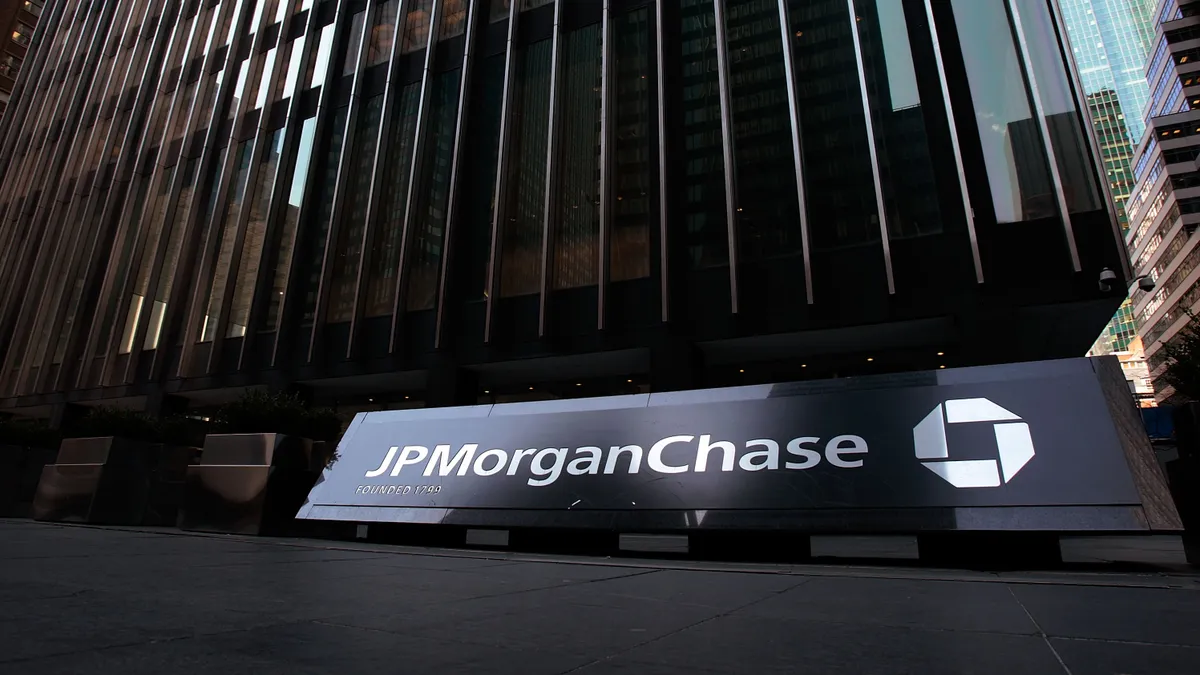Nineteen Republican attorneys general are accusing JPMorgan Chase of religious discrimination regarding the bank’s business practices, according to a letter state officials sent to CEO Jamie Dimon this month.
Led by Kentucky AG Daniel Cameron, the group alleges the bank “persistently discriminated against certain customers due to their religious or political affiliation.”
Over the past several years, the New York City-based bank discriminated against three faith-based organizations, including the National Committee for Religious Freedom, the AGs claimed.
The bank abruptly closed the group’s checking account in May 2022, and said it would be restored only after the NCRF provided the bank with a list of the group’s donors, the political candidates it supports and an explanation of the criteria it used to determine its endorsements, the AGs alleged.
The group is a “nonpartisan, faith-based nonprofit organization dedicated to defending the right of everyone in America to live one’s faith freely,” the AGs wrote, noting the NCRF’s National Advisory Board includes Christian, Hindu, Jewish and Muslim members.
“The bank’s brazen attempt to condition critical services on a customer passing some unarticulated religious or political litmus test flies in the face of Chase’s antidiscrimination policies,” the AGs wrote. “Worse, it flies in the face of basic American values of fairness and equality.”
The group also claimed that in 2021, the bank’s credit card processor shut down the account of the conservative group Family Council after labeling it “high risk.”
The bank’s payments platform, WePay, also denied service to the Defense of Liberty in 2021 after the conservative group tried to use the platform to process tickets to an event featuring Donald Trump Jr., the AGs wrote.
WePay, according to the AGs, said the organization was associated with “hate, violence, racial intolerance, [and] terrorism.”
The bank eventually reversed the decision following pressure from Missouri’s treasurer, the AGs said.
In addition to Cameron, the letter was signed by Republican attorneys general from Alabama, Alaska, Arkansas, Florida, Georgia, Idaho, Indiana, Iowa, Kansas, Louisiana, Mississippi, Missouri, Montana, South Carolina, Texas, Utah, Virginia and West Virginia.
JPMorgan denied the allegations in the letter.
“We have never and would never exit a client relationship due to their political or religious affiliation,” JPMorgan spokesperson Trish Wexler said in a statement to Banking Dive. “We serve 50,000 religious nonprofits throughout the country, among our nearly 80 million consumers and 5.7 million small business clients. These allegations are inconsistent with our business model that serves Americans in all 50 states, of all political stripes and religions.”
The attorneys general said the bank has refused to participate in a survey that they claim would outline where the bank stands regarding certain social and religious issues.
The Viewpoint Diversity Score Business Index, according to the AGs, is “the first comprehensive benchmark designed to measure corporate respect for religious and ideological diversity in the market, workplace, and public square.”
Accusing the firm of a double standard, the AGs noted JPMorgan prides itself on the company’s top score in the Human Rights Campaign’s Corporate Equality Index.
“Chase submitted information in response to the 2022 Corporate Equality Index and, when speaking about the index, affirmed the bank’s ‘unwavering commitment to members of the LGBT+ community,’” the AGs wrote. “Plainly, Chase has not extended the same unwavering commitment to conservatives and religious groups like NCRF.”
The state AG letter follows a similar letter 14 state treasurers sent to Dimon in March, which levied similar accusations against the bank.
Bank on notice
The state AG letter is the latest attempt by Kentucky state officials to put the bank on notice.
In January, Kentucky State Treasurer Allison Ball placed JPMorgan Chase, Citi, BlackRock and eight other financial institutions on a divestment list over what the state called a “boycott” of energy companies.
“We believe our business practices are in line with Kentucky law, and we are hopeful a deeper look at these facts would lead to reconsideration,” Wexler said in a statement seen by Bloomberg and Reuters.
Meanwhile, the Kentucky Bankers Association is suing the state’s AG, claiming he exceeded his legal authority when he, along with 13 other attorneys general, asked six big banks to detail their environmental, social and governance-tied lending last October.



















